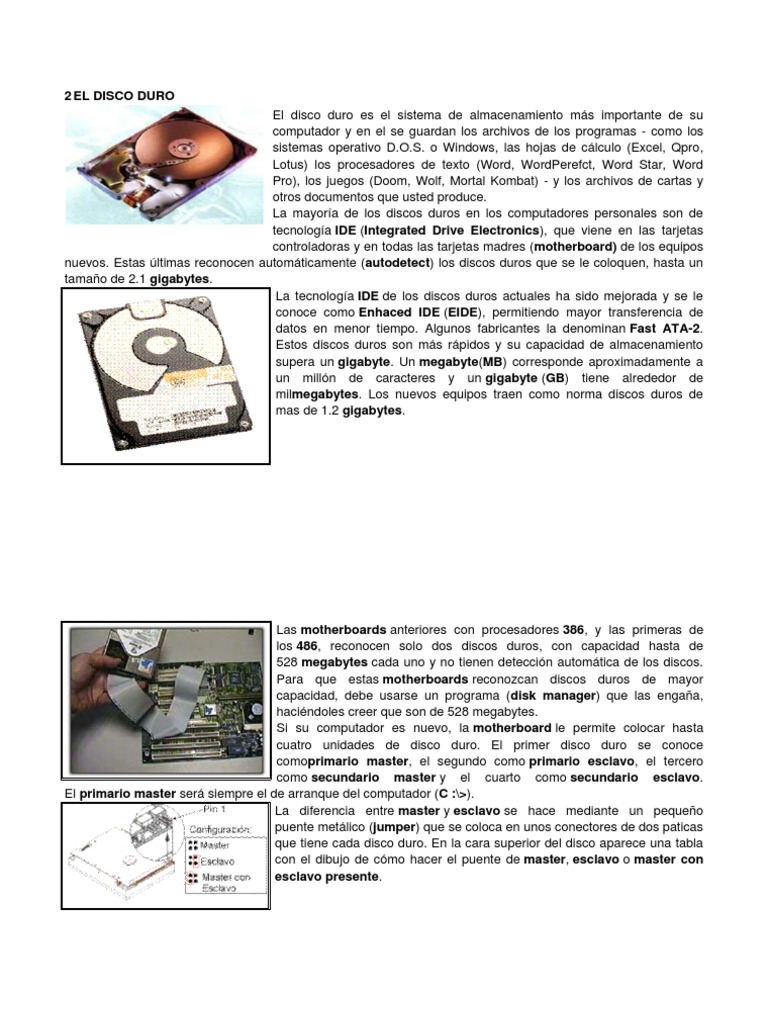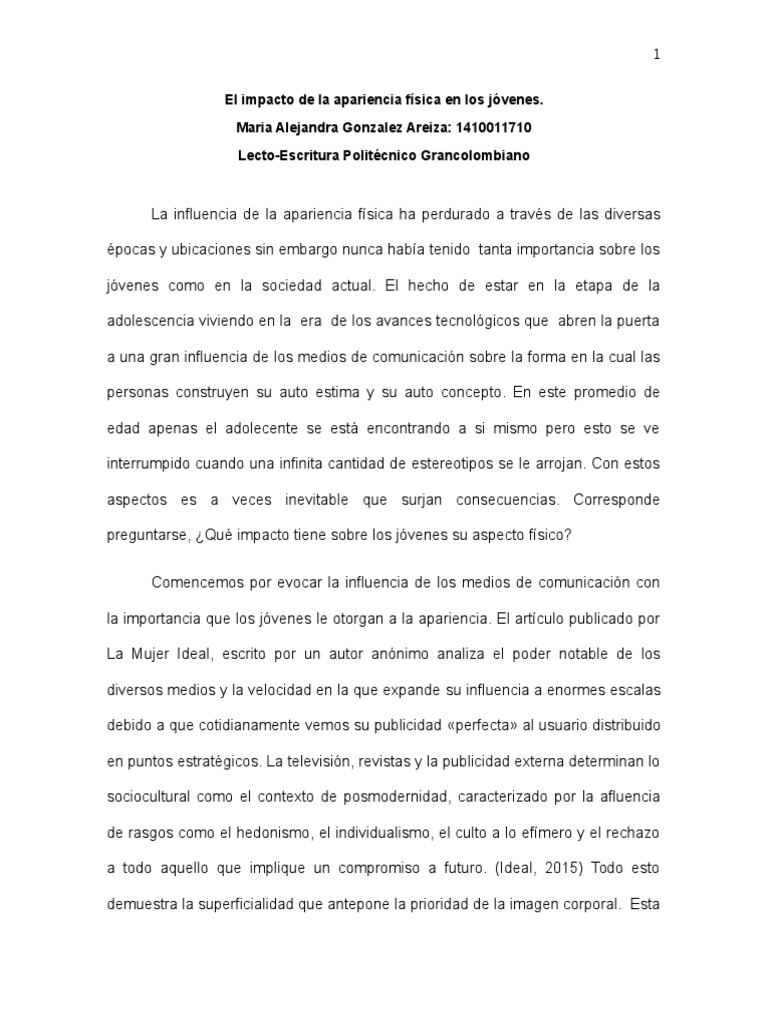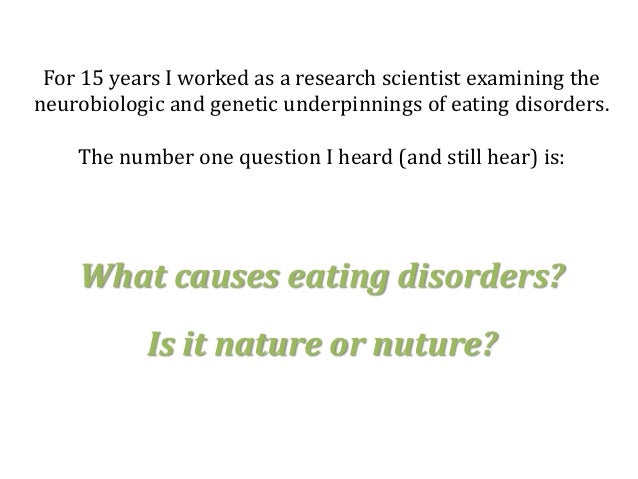
The Psychological Causes of Eating Disorders Sep 15, 2015 · This is the only known study that assessed subjective perceptions of the causes of eating disorders among a relatively large sample of individuals with and without eating disorders. The results support differences between the general public and individuals suffering from eating disorders, which hopefully can be used to provide proper education.
Eating Disorders Symptoms Signs Causes & Articles For
Journal of Eating Disorders Articles. 6 APA Practice Guidelines GUIDE TO USING THIS PRACTICE GUIDELINE The Practice Guideline for the Treatment of Patients With Eating Disorders, Third Edition, con- sists of three parts (A, B, and C) and many sections, not all of which will be equally useful for all, Types of Eating Disorders. The pressure to be thin can feel overbearing in our society. Eating disorders are common among women and girls in the general population. Research suggests that eating disorders are probably more common among women with diabetes than women who do not have diabetes..
What Causes Eating Disorders? Eating disorders are complex conditions that arise from a combination of long-standing behavioral, biological, emotional, psychological, interpersonal, and social factors. Scientists and researchers are still learning about the underlying causes of these emotionally and physically damaging conditions. disorders. In some individuals with eating disorders, certain chemicals in the brain that control hunger, appetite, and digestion have been found to be imbalanced. The exact meaning and implications of these imbalances remains under investigation. Eating disorders are complex conditions that can arise from a variety of potential causes.
Binge Eating ! Eating a greater amount of food in a fixed period of time (e.g., 2 hours) than what most people would eat in the same time period and circumstances AND ! Accompanied by a sense of lack of control over what and how much one is eating Other characteristics: • May be planned or spontaneous! What Causes Eating Disorders? Eating disorders are complex conditions that arise from a combination of long-standing behavioral, biological, emotional, psychological, interpersonal, and social factors. Scientists and researchers are still learning about the underlying causes of these emotionally and physically damaging conditions.
Apr 06, 2010 · Eating disorders, such as anorexia nervosa, bulimia and binge eating, are characterised by an unusual attitude towards food that may cause an individual to alter their eating habits and eating (A psychodynamic perspective on the psychological causes of eating disorders and/or disordered eating) Practically, too little or too much food will result in a change in weight. This input-output formula is HOW a person gets too thin or overweight.
binge-eating disorders, but about 30% of women who seek weight-loss treat-ment also have binge-eating disorders (Anorexia Nervosa and Related Eating Disorders Inc., 2004). However, the incidence figures are difficult to verify because subclinical eating problems or disordered eating are commonly not diagnosable. Current estimates suggest Apr 06, 2010 · Eating disorders, such as anorexia nervosa, bulimia and binge eating, are characterised by an unusual attitude towards food that may cause an individual to alter their eating habits and eating
Eating Disorders And Eating Disorder 1104 Words 5 Pages. Eating disorder is a serious problem happens in both men and women. Eating disorder is a sort of disease in which a person is having a strange routine of eating like consuming a huge amount of food each time they eat. 6 APA Practice Guidelines GUIDE TO USING THIS PRACTICE GUIDELINE The Practice Guideline for the Treatment of Patients With Eating Disorders, Third Edition, con- sists of three parts (A, B, and C) and many sections, not all of which will be equally useful for all
Binge Eating ! Eating a greater amount of food in a fixed period of time (e.g., 2 hours) than what most people would eat in the same time period and circumstances AND ! Accompanied by a sense of lack of control over what and how much one is eating Other characteristics: • May be planned or spontaneous! Mar 03, 2017 · The exact cause of eating disorders is unknown. However, many doctors believe that a combination of genetic, physical, social, and psychological …
What causes people to get an eating disorder? There is no simple answer to this question as there can be lots of different things that make people develop an eating disorder. Eating disorders affect men and women of all ages, races and backgrounds. While eating disorders appear to be about food and weight they actually occur for a complex set of Eating disorders rank as the third most common chronic illness in adolescent females, with an incidence of up to 5%. The prevalence has increased dramatically over the past 3 decades. Large numbers of adolescents who have eating disorders do not meet the strict DSM-IV criteria for either AN or BN but can be classified as EDNOS.
Eating disorders rank as the third most common chronic illness in adolescent females, with an incidence of up to 5%. The prevalence has increased dramatically over the past 3 decades. Large numbers of adolescents who have eating disorders do not meet the strict DSM-IV criteria for either AN or BN but can be classified as EDNOS. Eating disorders experts have found that prompt intensive treatment significantly improves the chances of recovery. Therefore, it is important to be aware of some of the warning signs of anorexia nervosa. Warning Signs of Anorexia Nervosa: Dramatic weight loss. Preoccupation with weight, food, calories, fat grams, and dieting.
binge-eating disorders, but about 30% of women who seek weight-loss treat-ment also have binge-eating disorders (Anorexia Nervosa and Related Eating Disorders Inc., 2004). However, the incidence figures are difficult to verify because subclinical eating problems or disordered eating are commonly not diagnosable. Current estimates suggest In this chapter, we first describe the disorders; the bulk of the chapter is devoted to a review of research (and speculation) on the causes of eating disorders, empha-sizing the discriminant validity of causal factors (i.e., why one person develops an eating disorder, whereas another seemingly similar person in a seemingly similar
There are some differences between eating disorders in children (younger than 12) and eating disorders in teenagers and adults. Children are: less likely to say that they are afraid of weight gain or being fat In this chapter, we first describe the disorders; the bulk of the chapter is devoted to a review of research (and speculation) on the causes of eating disorders, empha-sizing the discriminant validity of causal factors (i.e., why one person develops an eating disorder, whereas another seemingly similar person in a seemingly similar
Causes and Risk Factors for Eating Disorders
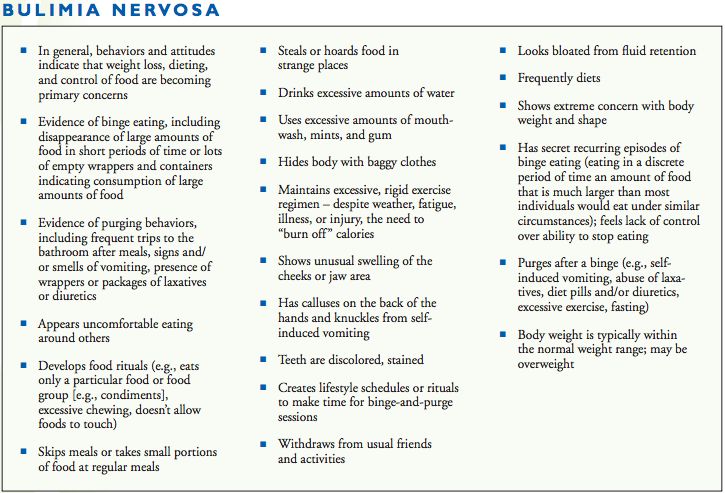
Causes and Risk Factors for Eating Disorders. Eating Disorders Basics. Eating Disorders: Anorexia, Bulimia, and Binge Eating Disorder; Can Eating Disorders Be Prevented? The Complex Causes of Eating Disorders, What causes people to get an eating disorder? There is no simple answer to this question as there can be lots of different things that make people develop an eating disorder. Eating disorders affect men and women of all ages, races and backgrounds. While eating disorders appear to be about food and weight they actually occur for a complex set of.
Risk Factors National Eating Disorders Association. There are some differences between eating disorders in children (younger than 12) and eating disorders in teenagers and adults. Children are: less likely to say that they are afraid of weight gain or being fat, Anorexia Nervosa Fact Sheet (PDF) Causes. Scientists and researchers have been unable to successfully pinpoint the exact causes of eating disorders. They do, however, believe that there are several factors that may cause people to suffer from this form of mental illness. For some people, biology plays a role: Their genes can impact whether they.
Ballet Dancing and Eating Disorders What Does Recovery
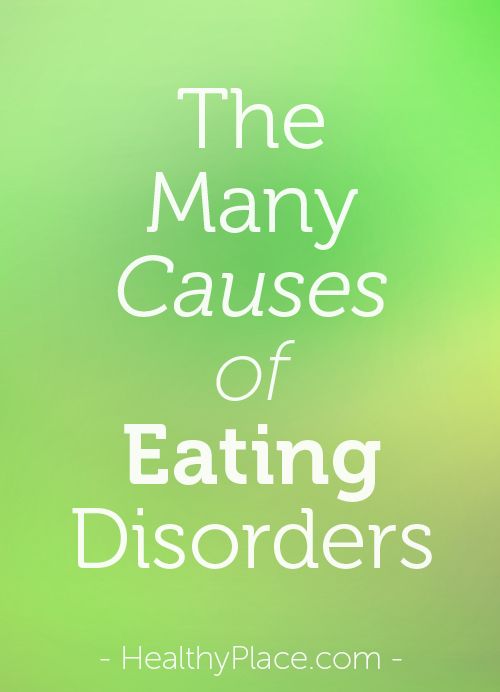
CAUSES OF EATING DISORDERS pdfs.semanticscholar.org. Eating disorders are complex and affect all kinds of people. Risk factors for all eating disorders involve a range of biological, psychological, and sociocultural issues. These factors may interact differently in different people, so two people with the same eating disorder can have very diverse perspectives, experiences, and symptoms. Abstract Anorexia nervosa and bulimia nervosa have emerged as the predominant eating disorders. We review the recent research evidence pertaining to the development of these disorders, including sociocultural factors (e.g., media and peer influences), family factors (e.g., enmeshment and criticism), negative affect, low self-esteem, and body dissatisfaction..
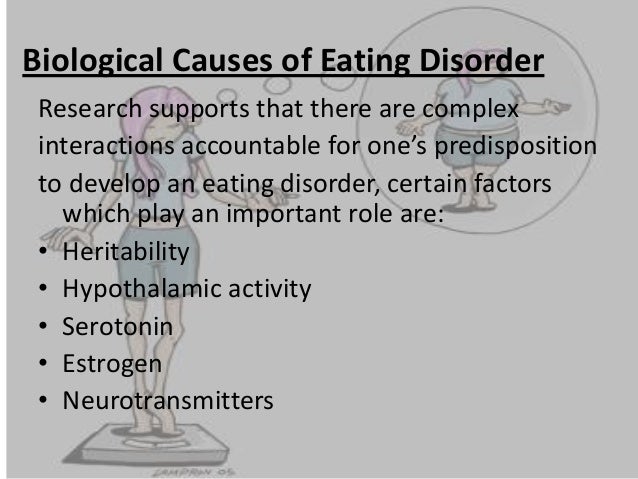
Eating disorders can affect people of all ages, racial/ethnic backgrounds, body weights, and . genders. Although eating disorders often appear during the teen years or young adulthood, they Disorders Research Program supports research on the causes, symptoms, diagnosis, and treatment at medical institutions across the country. It also Eating Disorders Basics. Eating Disorders: Anorexia, Bulimia, and Binge Eating Disorder; Can Eating Disorders Be Prevented? The Complex Causes of Eating Disorders
Eating disorders are one of the significant problems in the care of adolescents and even children. These complex disorders are believed to arise from interaction of multiple risk factors. Eating disorders are defined by disturbance in eating habits that may be either excessive or insufficient food intake. (A psychodynamic perspective on the psychological causes of eating disorders and/or disordered eating) Practically, too little or too much food will result in a change in weight. This input-output formula is HOW a person gets too thin or overweight.
The Cause of Eating Disorders Essay 591 Words 3 Pages The Cause of Eating Disorders Although the causes are many and varied, we know that people with eating disorders often use food and the control of food in an attempt to compensate for feelings and emotions that may otherwise seem overwhelming. Abstract Anorexia nervosa and bulimia nervosa have emerged as the predominant eating disorders. We review the recent research evidence pertaining to the development of these disorders, including sociocultural factors (e.g., media and peer influences), family factors (e.g., enmeshment and criticism), negative affect, low self-esteem, and body dissatisfaction.
Aug 17, 2015 · What causes binge eating disorder? No one knows for sure what causes binge eating disorder. Like other eating disorders, binge eating disorder may result from a mix of factors related to your genes, your thoughts and feelings, and social issues. Binge eating disorder has been linked to depression and anxiety. Abstract Anorexia nervosa and bulimia nervosa have emerged as the predominant eating disorders. We review the recent research evidence pertaining to the development of these disorders, including sociocultural factors (e.g., media and peer influences), family factors (e.g., enmeshment and criticism), negative affect, low self-esteem, and body dissatisfaction.
What causes people to get an eating disorder? There is no simple answer to this question as there can be lots of different things that make people develop an eating disorder. Eating disorders affect men and women of all ages, races and backgrounds. While eating disorders appear to be about food and weight they actually occur for a complex set of May 30, 2018 · Researchers are finding that eating disorders are caused by a complex interaction of genetic, biological, behavioral, psychological, and social factors. Researchers are using the latest technology and science to better understand eating disorders. One approach involves the study of human genes. Eating disorders run in families.
Eating disorders rank as the third most common chronic illness in adolescent females, with an incidence of up to 5%. The prevalence has increased dramatically over the past 3 decades. Large numbers of adolescents who have eating disorders do not meet the strict DSM-IV criteria for either AN or BN but can be classified as EDNOS. Jan 07, 2014 · This lesson takes a broad look at the causes of eating disorders. In addition, this lesson looks at what causes individuals to face higher or lower...
What causes people to get an eating disorder? There is no simple answer to this question as there can be lots of different things that make people develop an eating disorder. Eating disorders affect men and women of all ages, races and backgrounds. While eating disorders appear to be about food and weight they actually occur for a complex set of Jan 07, 2014 · This lesson takes a broad look at the causes of eating disorders. In addition, this lesson looks at what causes individuals to face higher or lower...
Eating Disorders And Eating Disorder 1104 Words 5 Pages. Eating disorder is a serious problem happens in both men and women. Eating disorder is a sort of disease in which a person is having a strange routine of eating like consuming a huge amount of food each time they eat. In this chapter, we first describe the disorders; the bulk of the chapter is devoted to a review of research (and speculation) on the causes of eating disorders, empha-sizing the discriminant validity of causal factors (i.e., why one person develops an eating disorder, whereas another seemingly similar person in a seemingly similar
Peer mentoring for eating disorders: results from the evaluation of a pilot program. Eating disorders (EDs) are serious psychiatric illnesses that have high rates of … (A psychodynamic perspective on the psychological causes of eating disorders and/or disordered eating) Practically, too little or too much food will result in a change in weight. This input-output formula is HOW a person gets too thin or overweight.
Eating Disorders Basics. Eating Disorders: Anorexia, Bulimia, and Binge Eating Disorder; Can Eating Disorders Be Prevented? The Complex Causes of Eating Disorders What is an eating disorder? People with an eating disorder experience extreme disturbances in their eating behaviours and related thoughts and feelings. Eating disorders are characterised by an overwhelming, consuming drive to be thin and a morbid fear of gaining weight and losing control over eating. Mostly females are treated for eating
What causes people to get an eating disorder? There is no simple answer to this question as there can be lots of different things that make people develop an eating disorder. Eating disorders affect men and women of all ages, races and backgrounds. While eating disorders appear to be about food and weight they actually occur for a complex set of Eating disorders are one of the significant problems in the care of adolescents and even children. These complex disorders are believed to arise from interaction of multiple risk factors. Eating disorders are defined by disturbance in eating habits that may be either excessive or insufficient food intake.
Eating Disorders Prevention Is Worth Every Once
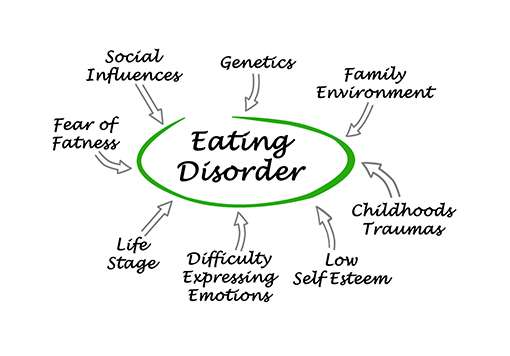
The Media's Influence on Eating Disorders. May 30, 2018 · Researchers are finding that eating disorders are caused by a complex interaction of genetic, biological, behavioral, psychological, and social factors. Researchers are using the latest technology and science to better understand eating disorders. One approach involves the study of human genes. Eating disorders run in families., Eating Disorders Basics. Eating Disorders: Anorexia, Bulimia, and Binge Eating Disorder; Can Eating Disorders Be Prevented? The Complex Causes of Eating Disorders.
What Causes Eating Disorders? News Medical
The Causes Of Eating Disorders Psychology Essay. There are some differences between eating disorders in children (younger than 12) and eating disorders in teenagers and adults. Children are: less likely to say that they are afraid of weight gain or being fat, (A psychodynamic perspective on the psychological causes of eating disorders and/or disordered eating) Practically, too little or too much food will result in a change in weight. This input-output formula is HOW a person gets too thin or overweight..
Eating Disorders Basics. Eating Disorders: Anorexia, Bulimia, and Binge Eating Disorder; Can Eating Disorders Be Prevented? The Complex Causes of Eating Disorders Eating disorders are one of the significant problems in the care of adolescents and even children. These complex disorders are believed to arise from interaction of multiple risk factors. Eating disorders are defined by disturbance in eating habits that may be either excessive or insufficient food intake.
(National Eating Disorders Association, 2004)It is safe to say then that all of the psychological approaches: cognitive, behavioural and psychodynamic are all perfectly valid in explaining why someone may suffer from an eating disorder and it is wise to keep an open minded approach to treating an eating disorder, as all of the approaches work How stress affects individuals with eating disorders Among eating disorder patients, stress can be caused from various social and environmental factors that may include peer and societal pressures
Background: In this study, we examined perceptions regarding the causes of eating disorders, both among those with eating disorders as well as those without. By understanding the differences in perceived causes between the two groups, better educational programs for lay people and those suffering from eating disorders can be developed. The Cause of Eating Disorders Essay 591 Words 3 Pages The Cause of Eating Disorders Although the causes are many and varied, we know that people with eating disorders often use food and the control of food in an attempt to compensate for feelings and emotions that may otherwise seem overwhelming.
Eating Disorders Basics. Eating Disorders: Anorexia, Bulimia, and Binge Eating Disorder; Can Eating Disorders Be Prevented? The Complex Causes of Eating Disorders Eating disorders can affect people of all ages, racial/ethnic backgrounds, body weights, and . genders. Although eating disorders often appear during the teen years or young adulthood, they Disorders Research Program supports research on the causes, symptoms, diagnosis, and treatment at medical institutions across the country. It also
Types of Eating Disorders. The pressure to be thin can feel overbearing in our society. Eating disorders are common among women and girls in the general population. Research suggests that eating disorders are probably more common among women with diabetes than women who do not have diabetes. Background: In this study, we examined perceptions regarding the causes of eating disorders, both among those with eating disorders as well as those without. By understanding the differences in perceived causes between the two groups, better educational programs for lay people and those suffering from eating disorders can be developed.
Eating disorders are also viewed as a western world affliction and not commonly related to other ethnic groups. This is not an accurate assumption. Eating disorders are prevalent in many different cultures and have been for a long time. This just continues to prove there are no barriers when it … Binge Eating ! Eating a greater amount of food in a fixed period of time (e.g., 2 hours) than what most people would eat in the same time period and circumstances AND ! Accompanied by a sense of lack of control over what and how much one is eating Other characteristics: • May be planned or spontaneous!
Eating disorders are complex and affect all kinds of people. Risk factors for all eating disorders involve a range of biological, psychological, and sociocultural issues. These factors may interact differently in different people, so two people with the same eating disorder can have very diverse perspectives, experiences, and symptoms. Peer mentoring for eating disorders: results from the evaluation of a pilot program. Eating disorders (EDs) are serious psychiatric illnesses that have high rates of …
(National Eating Disorders Association, 2004)It is safe to say then that all of the psychological approaches: cognitive, behavioural and psychodynamic are all perfectly valid in explaining why someone may suffer from an eating disorder and it is wise to keep an open minded approach to treating an eating disorder, as all of the approaches work Eating disorders present differently in sufferers due to the complexity of the neurological and biological system that eating is, and for this reason, cause and effect cannot be generalized. However, there are some things that we do know for sure about the causes of …
Mar 03, 2017 · The exact cause of eating disorders is unknown. However, many doctors believe that a combination of genetic, physical, social, and psychological … Eating disorders can affect people of all ages, racial/ethnic backgrounds, body weights, and . genders. Although eating disorders often appear during the teen years or young adulthood, they Disorders Research Program supports research on the causes, symptoms, diagnosis, and treatment at medical institutions across the country. It also
Ballet dancers have a significantly higher risk of developing eating disorders than their non-dancing peers 1, so much so that the prestigious Royal Ballet School in London, England publishes an Eating Disorder Policy online 2. This policy suggests that students are more likely to become eating Eating disorders present differently in sufferers due to the complexity of the neurological and biological system that eating is, and for this reason, cause and effect cannot be generalized. However, there are some things that we do know for sure about the causes of …
What is an eating disorder Department of Health
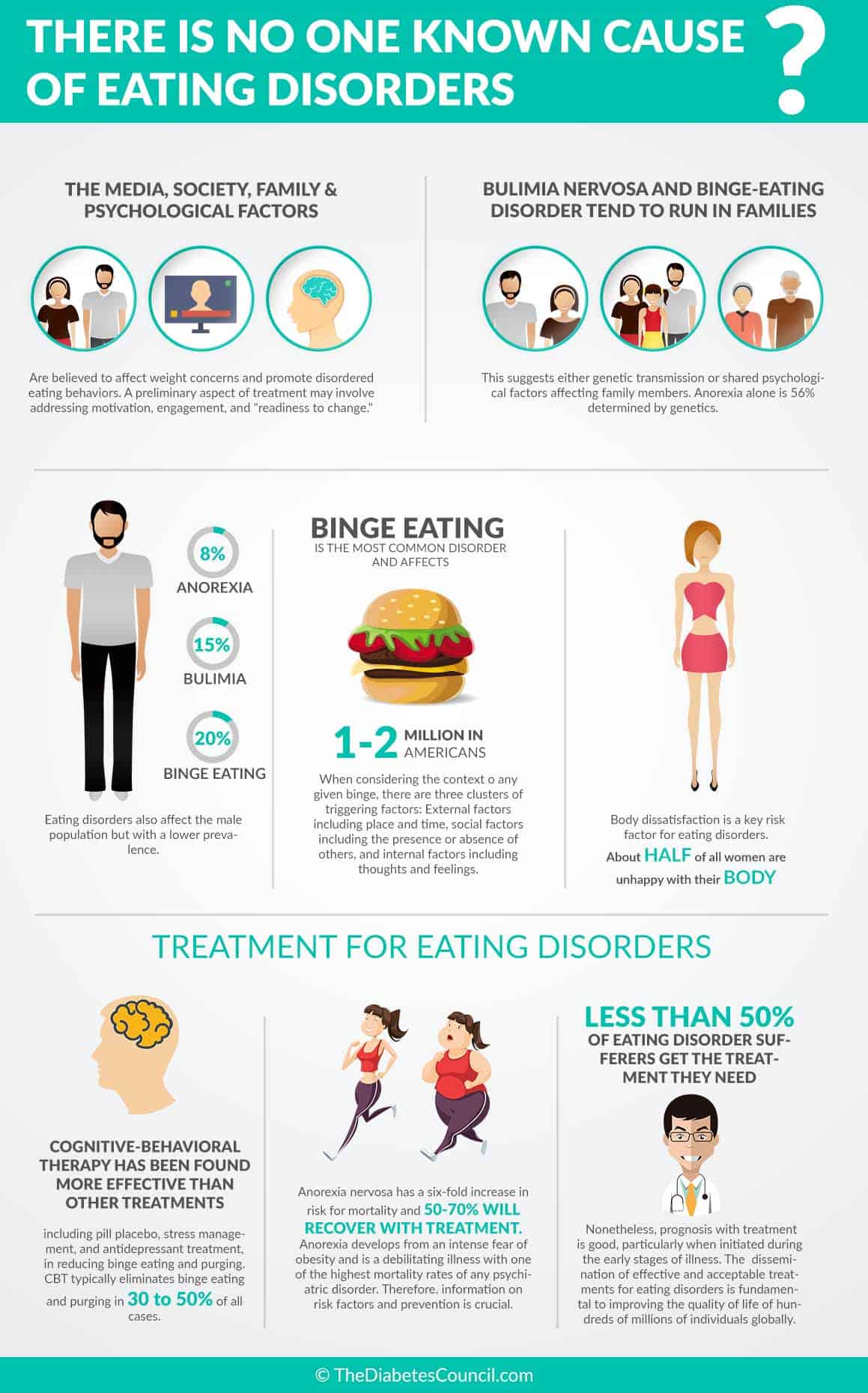
Eating Disorders and Stress Psychology Today. Jan 07, 2014 · This lesson takes a broad look at the causes of eating disorders. In addition, this lesson looks at what causes individuals to face higher or lower..., (National Eating Disorders Association, 2004)It is safe to say then that all of the psychological approaches: cognitive, behavioural and psychodynamic are all perfectly valid in explaining why someone may suffer from an eating disorder and it is wise to keep an open minded approach to treating an eating disorder, as all of the approaches work.
DSM-5 Feeding and Eating Disorders
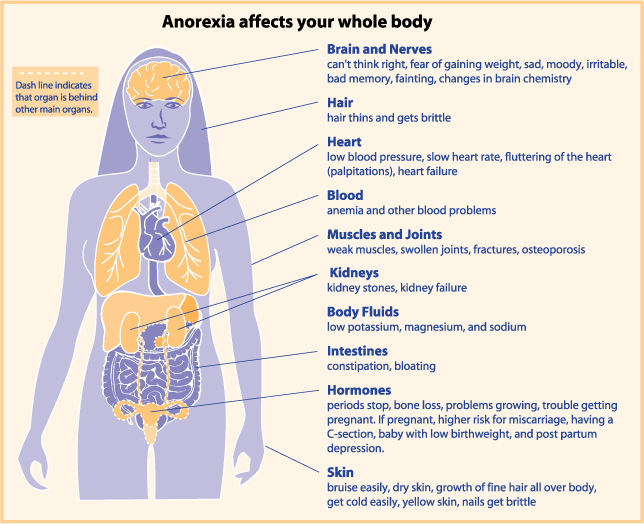
Symptoms & Causes of Binge Eating Disorder NIDDK. DSM-5: Feeding and Eating Disorders Anorexia Nervosa: 307.1 (F50.01 or F50.02) A. Restriction of energy intake relative to requirements leading to a significantly low body weight in the context of age, sex, developmental trajectory, and physical health. The night eating causes significant distress and/or impairment in functioning. The Eating disorders are complex and affect all kinds of people. Risk factors for all eating disorders involve a range of biological, psychological, and sociocultural issues. These factors may interact differently in different people, so two people with the same eating disorder can have very diverse perspectives, experiences, and symptoms..

binge-eating disorders, but about 30% of women who seek weight-loss treat-ment also have binge-eating disorders (Anorexia Nervosa and Related Eating Disorders Inc., 2004). However, the incidence figures are difficult to verify because subclinical eating problems or disordered eating are commonly not diagnosable. Current estimates suggest Anorexia Nervosa Fact Sheet (PDF) Causes. Scientists and researchers have been unable to successfully pinpoint the exact causes of eating disorders. They do, however, believe that there are several factors that may cause people to suffer from this form of mental illness. For some people, biology plays a role: Their genes can impact whether they
Eating disorders are also viewed as a western world affliction and not commonly related to other ethnic groups. This is not an accurate assumption. Eating disorders are prevalent in many different cultures and have been for a long time. This just continues to prove there are no barriers when it … Sep 15, 2015 · This is the only known study that assessed subjective perceptions of the causes of eating disorders among a relatively large sample of individuals with and without eating disorders. The results support differences between the general public and individuals suffering from eating disorders, which hopefully can be used to provide proper education.
What causes people to get an eating disorder? There is no simple answer to this question as there can be lots of different things that make people develop an eating disorder. Eating disorders affect men and women of all ages, races and backgrounds. While eating disorders appear to be about food and weight they actually occur for a complex set of The biological causes of eating disorders are not well understood. This could be because the majority of studies are conducted during the acute or recovery phase of an eating disorder. At this time, there are physiological changes occurring in the person as a result of their eating disorder behaviours which can affect the findings of the studies.
There are some differences between eating disorders in children (younger than 12) and eating disorders in teenagers and adults. Children are: less likely to say that they are afraid of weight gain or being fat What Causes Eating Disorders? Eating disorders are complex conditions that arise from a combination of long-standing behavioral, biological, emotional, psychological, interpersonal, and social factors. Scientists and researchers are still learning about the underlying causes of these emotionally and physically damaging conditions.
Eating disorders can affect people of all ages, racial/ethnic backgrounds, body weights, and . genders. Although eating disorders often appear during the teen years or young adulthood, they Disorders Research Program supports research on the causes, symptoms, diagnosis, and treatment at medical institutions across the country. It also There are some differences between eating disorders in children (younger than 12) and eating disorders in teenagers and adults. Children are: less likely to say that they are afraid of weight gain or being fat
Eating disorders experts have found that prompt intensive treatment significantly improves the chances of recovery. Therefore, it is important to be aware of some of the warning signs of anorexia nervosa. Warning Signs of Anorexia Nervosa: Dramatic weight loss. Preoccupation with weight, food, calories, fat grams, and dieting. A Guide to Eating Disorders If you think that you or someone you know may have an eating disorder, please contact your MIT Medical primary care provider at 617-253-4481 or the Mental Health Service at 617-253-2916. The term “eating disorder” is so general that it simply connotes a …
Eating Disorders And Eating Disorder 1104 Words 5 Pages. Eating disorder is a serious problem happens in both men and women. Eating disorder is a sort of disease in which a person is having a strange routine of eating like consuming a huge amount of food each time they eat. Eating disorders are one of the significant problems in the care of adolescents and even children. These complex disorders are believed to arise from interaction of multiple risk factors. Eating disorders are defined by disturbance in eating habits that may be either excessive or insufficient food intake.
Background: In this study, we examined perceptions regarding the causes of eating disorders, both among those with eating disorders as well as those without. By understanding the differences in perceived causes between the two groups, better educational programs for lay people and those suffering from eating disorders can be developed. Peer mentoring for eating disorders: results from the evaluation of a pilot program. Eating disorders (EDs) are serious psychiatric illnesses that have high rates of …
Jan 07, 2014 · This lesson takes a broad look at the causes of eating disorders. In addition, this lesson looks at what causes individuals to face higher or lower... DSM-5: Feeding and Eating Disorders Anorexia Nervosa: 307.1 (F50.01 or F50.02) A. Restriction of energy intake relative to requirements leading to a significantly low body weight in the context of age, sex, developmental trajectory, and physical health. The night eating causes significant distress and/or impairment in functioning. The
The Cause of Eating Disorders Essay 591 Words 3 Pages The Cause of Eating Disorders Although the causes are many and varied, we know that people with eating disorders often use food and the control of food in an attempt to compensate for feelings and emotions that may otherwise seem overwhelming. Eating disorders are complex and affect all kinds of people. Risk factors for all eating disorders involve a range of biological, psychological, and sociocultural issues. These factors may interact differently in different people, so two people with the same eating disorder can have very diverse perspectives, experiences, and symptoms.
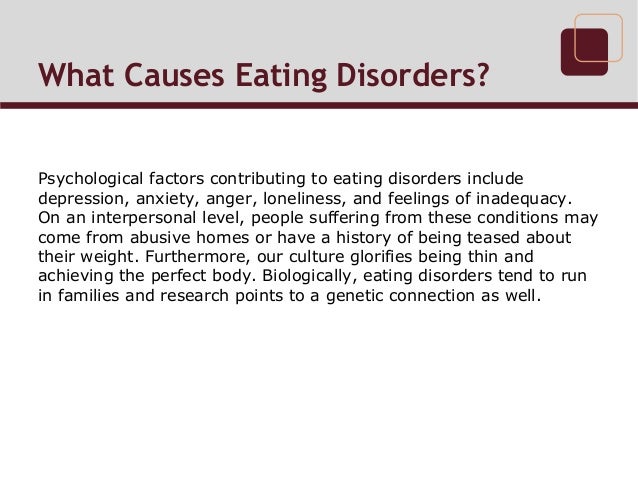
What is an eating disorder? People with an eating disorder experience extreme disturbances in their eating behaviours and related thoughts and feelings. Eating disorders are characterised by an overwhelming, consuming drive to be thin and a morbid fear of gaining weight and losing control over eating. Mostly females are treated for eating Eating disorders experts have found that prompt intensive treatment significantly improves the chances of recovery. Therefore, it is important to be aware of some of the warning signs of anorexia nervosa. Warning Signs of Anorexia Nervosa: Dramatic weight loss. Preoccupation with weight, food, calories, fat grams, and dieting.

